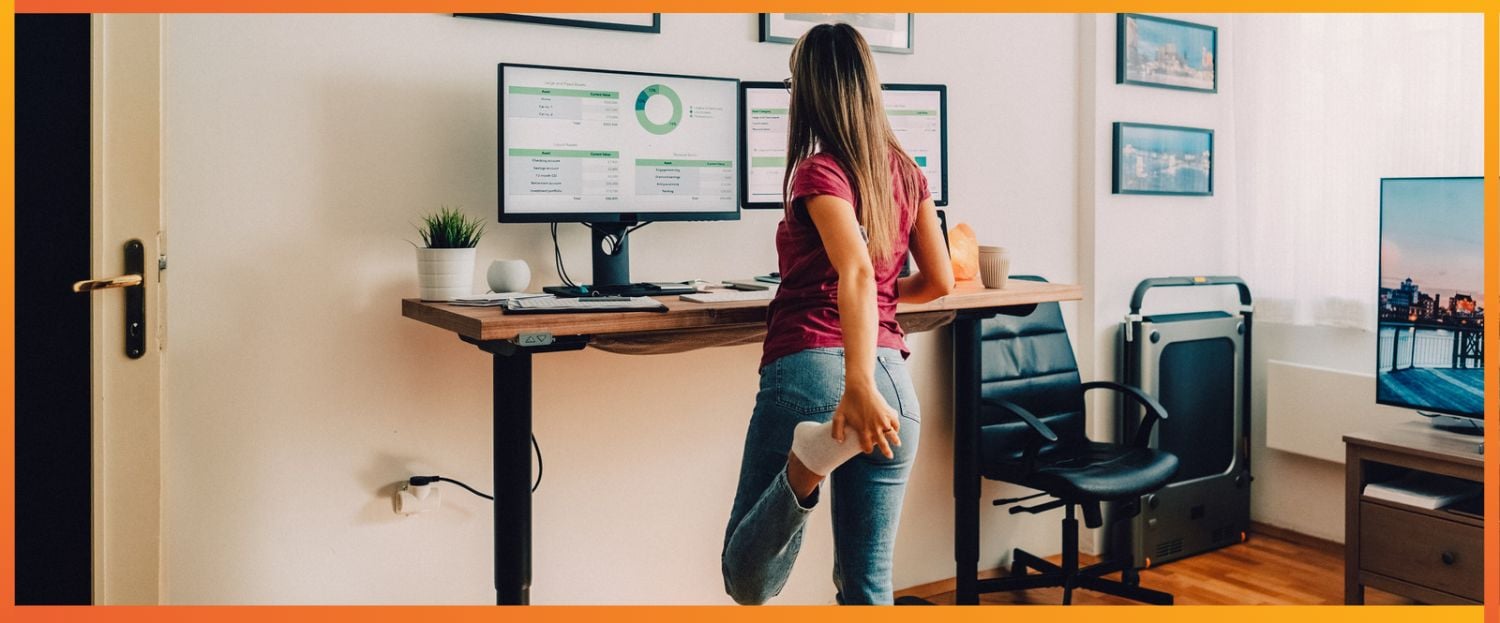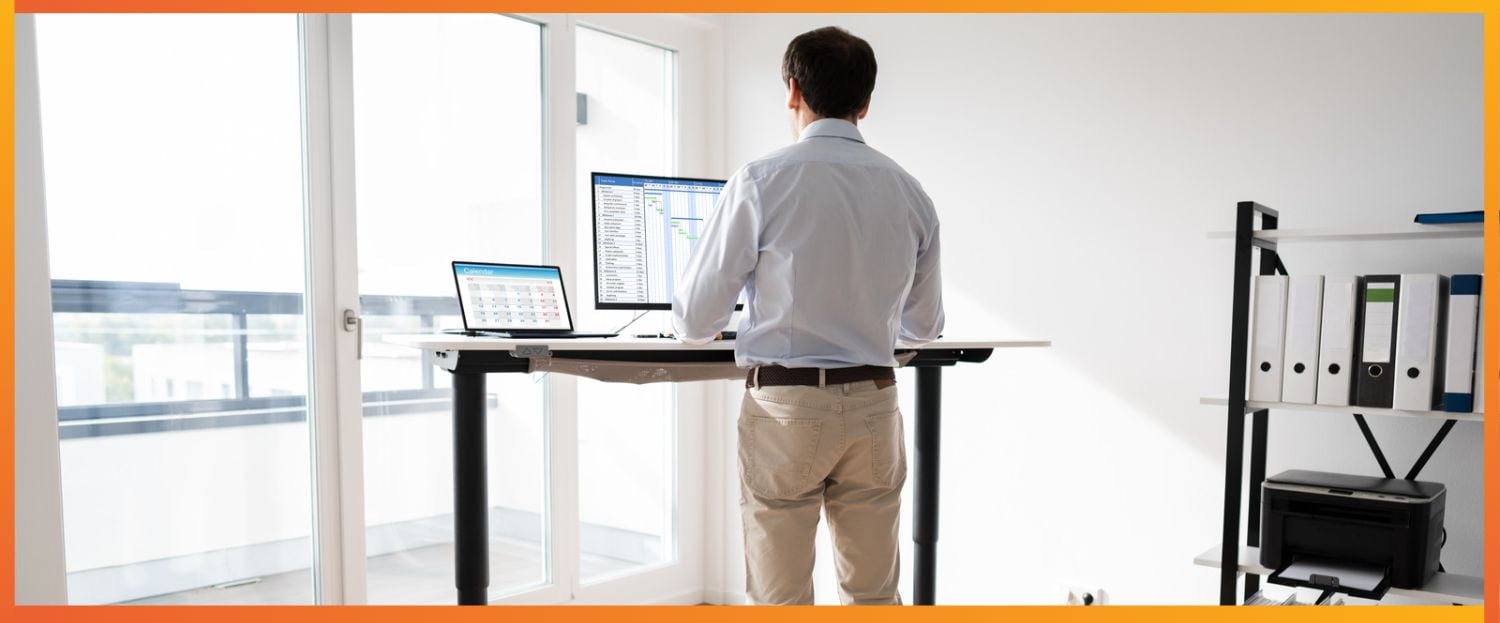Posture
The “C” shape that the spine takes when sitting causes uneven pressure on the spinal disks.
This leads to all kinds of problems down the road and can worsen back pain and poor posture. Standing properly helps solve these problems.
Circulation
When you stand, you’re providing your body with a more efficient way to shuttle blood to your cells all throughout the body.
This results in greater oxygen delivery to the muscles and provides many other benefits such as a reduced risk of cancer and ensuring healthier joints.
Productivity
Finally, some people swear that standing increases productivity, but this varies from person to person.
It’s been theorised that the increased blood flow and good posture that standing brings help the brain to act more efficiently and make the individual feel more energised. It’s unclear if this productivity boost continues into the long term, however.
Can You Stand Too Much?
In the same way that there’s a lethal dose of every healthy food, there’s also a limit to how much you should stand.
Standing for extended periods of time with barely any movement can lead to the locking up of the joints of the hips, knees, and ankles, and blood pooling at your feet.
In your workday, strive to stand for about 45 minutes per hour to gain the maximum benefits of standing.
How to Increase Your Standing Time
Now that you know the benefits of standing compared to sitting, here are a few ways that you can increase the amount of time that you stand:
- Invest in a standing desk. These desks are designed to be lowered or raised at a moment's notice, so you can switch between standing or sitting while you work.
- Try periodically shifting your weight between your left and right foot to help reduce the discomfort that comes with prolonged standing
- Make sure to exercise properly, with special emphasis on your core. Stronger core muscles will help your spine take its natural form, resulting in better posture and reduced discomfort.
The Verdict
Because standing is an easy and excellent way to passively burn calories, it’s a good activity to incorporate into your day.
However, you should keep in mind that excessive standing can also pose health concerns. To avoid this, set up your workspace so that you can cycle through multiple positions each day. For a full rundown of the benefits of standing desks, check out our article; 8 Incredible Benefits of Standing Desks.
After all, staying healthy is essential to high energy levels and greater productivity.







